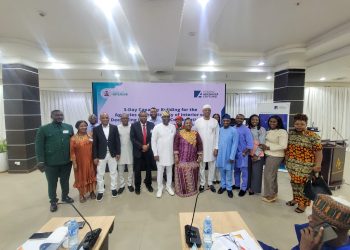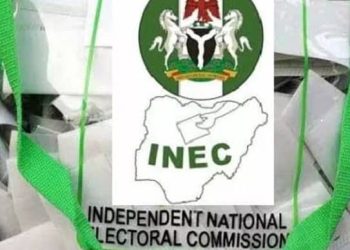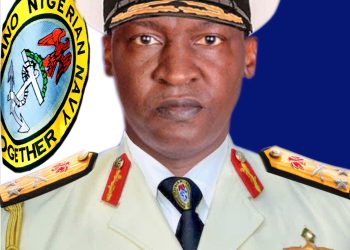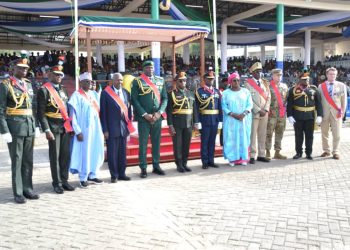By Nkechi Eze
The Executive Chairman of the Fiscal Responsibility Commission (FRC), Victor Muruako, Esq., has restated the Commission’s commitment to transparency, accountability, and enhanced collaboration with civil society organisations. He gave the assurance during an advocacy visit by the Socio-Economic Research and Development Centre (SERDEC) to the Commission’s headquarters in Abuja.
Head strategic communications, Bede Anyanwu Ogueri, in an official signed statement disclosed that the visit, led by SERDEC’s Executive Director, Tijani Abdulkareem, was part of the organisation’s ongoing engagement under the Open Government Partnership (OGP) initiative, aimed at strengthening institutional cooperation to advance fiscal openness and responsible public financial management in Nigeria.
Speaking on behalf of his delegation, Abdulkareem outlined the purpose of the visit, which included exploring alignment between the Commission’s statutory mandate and the OGP’s commitments, proposing partnership on fiscal transparency projects, and presenting a series of strategic recommendations to strengthen public engagement and digital innovation within the Commission.

“SERDEC recognizes the pivotal role FRC plays in enforcing fiscal discipline, monitoring public expenditure, and ensuring budget compliance,” he said. “These functions directly support the goals of the OGP, especially in promoting transparency, anti-corruption, and citizen participation.”
Abdulkareem noted that deeper collaboration with the Commission would help make its reports and fiscal data more accessible to the public in simplified formats. He also called for regular civil society engagement forums, joint public education on budgeting and fiscal laws, support for open budget platforms at the sub-national level, and partnership in tracking grassroots budget implementation and compliance.
In his response, Chairman Muruako welcomed the visit and expressed the Commission’s readiness to work with SERDEC and other organisations committed to fiscal reform and public accountability. He highlighted the FRC’s existing role in anti-corruption efforts through its membership in the Technical Unit on Governance and Anti-Corruption Reform (TUGAR), noting that the agency has remained active in promoting transparency across public institutions.
He also commended the fiscal reform agenda of President Bola Ahmed Tinubu and declared his full support for the push for Local Government autonomy. However, he stressed the importance of capacity building, particularly in local councils.
“Local government officials must first be trained in budgeting and fiscal responsibility to ensure effective implementation,” he said.
Muruako acknowledged the broad mandate of the Commission but pointed to financial limitations affecting its performance. “The Commission has a broad mandate but faces financial constraints in fulfilling its responsibilities,” he said.
He disclosed that efforts are currently underway to amend the Fiscal Responsibility Act, 2007, in order to strengthen the Commission’s powers and boost revenue generation into the Consolidated Revenue Fund.
Reiterating the Commission’s openness to collaboration, Muruako assured the SERDEC team that, “Our collaboration machinery is ready and waiting. We look forward to working together to achieve our shared vision of open and accountable governance.”
The visit is seen as a key milestone in the ongoing drive to deepen civil society and government collaboration around Nigeria’s fiscal governance, transparency, and inclusive participation in public financial management.















